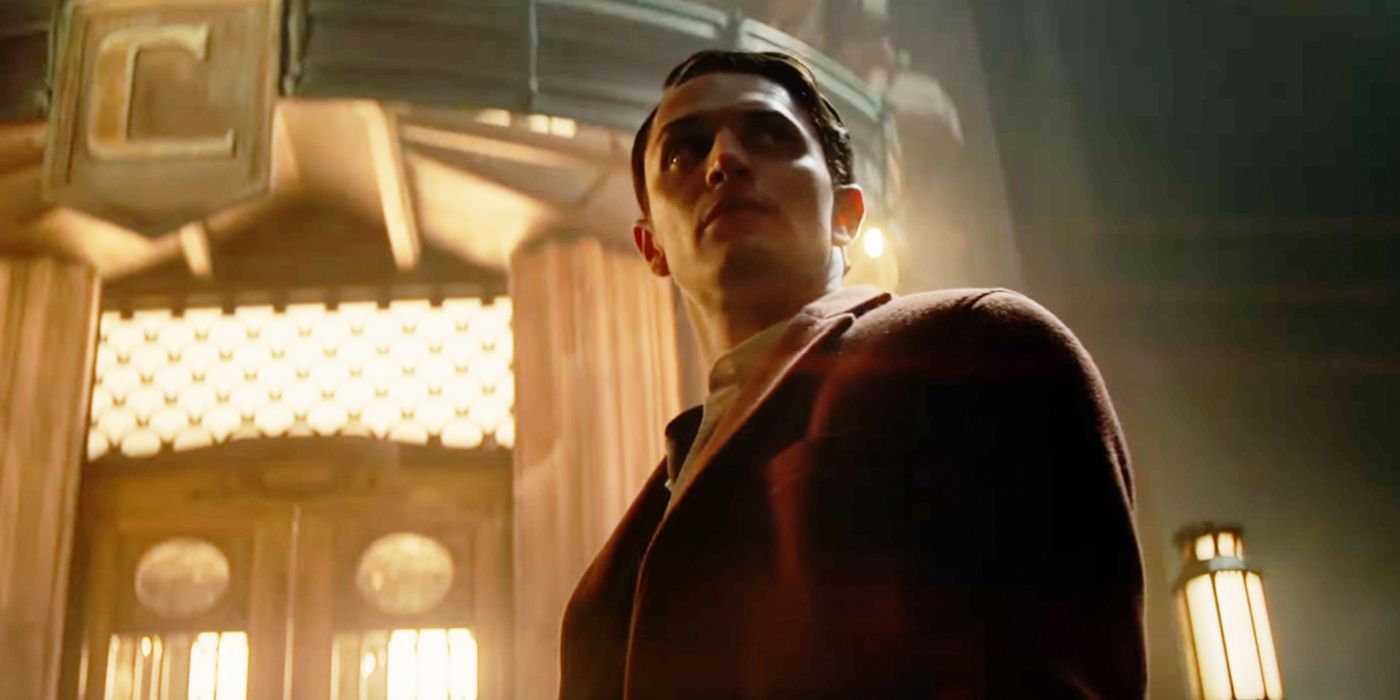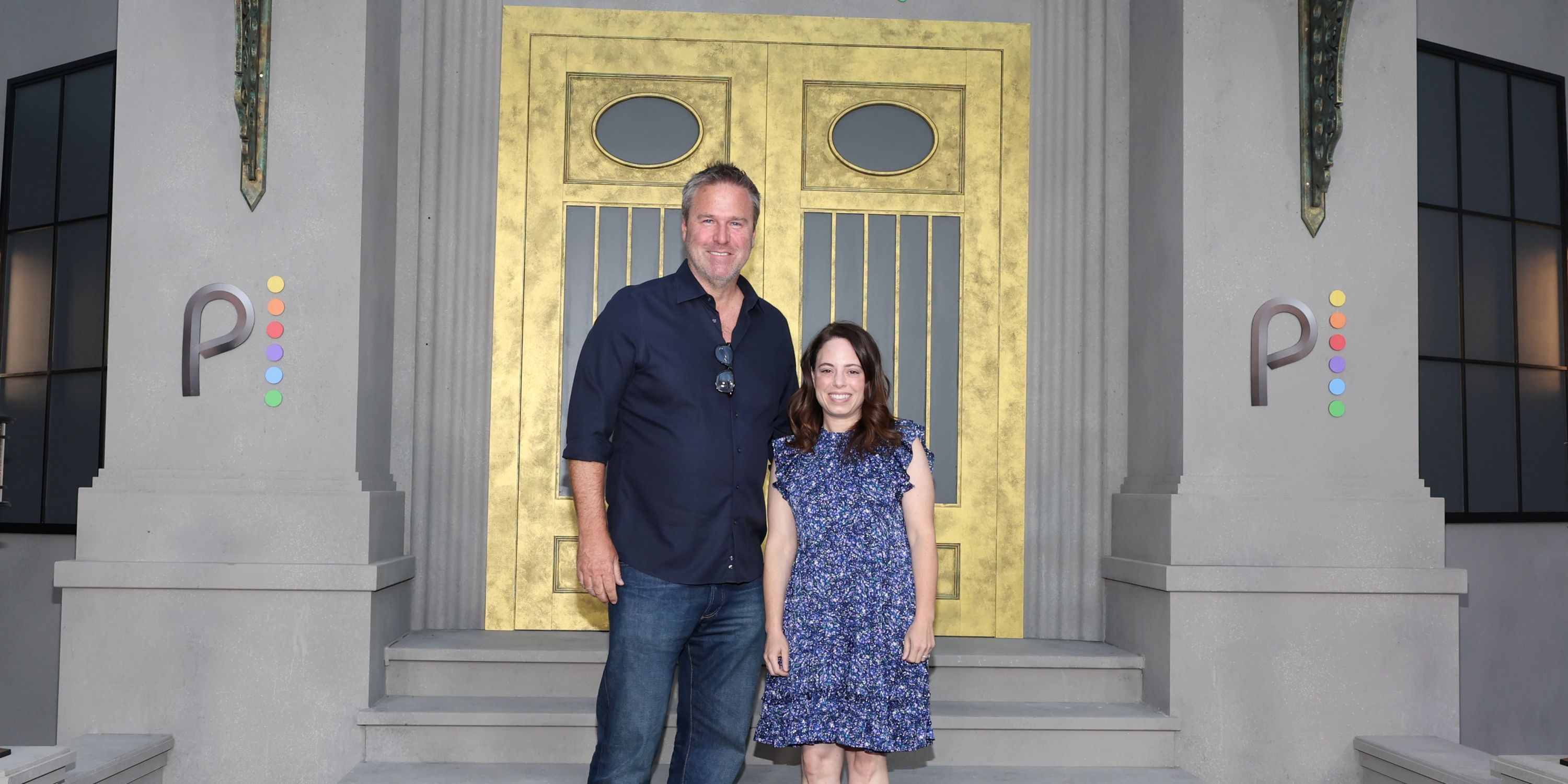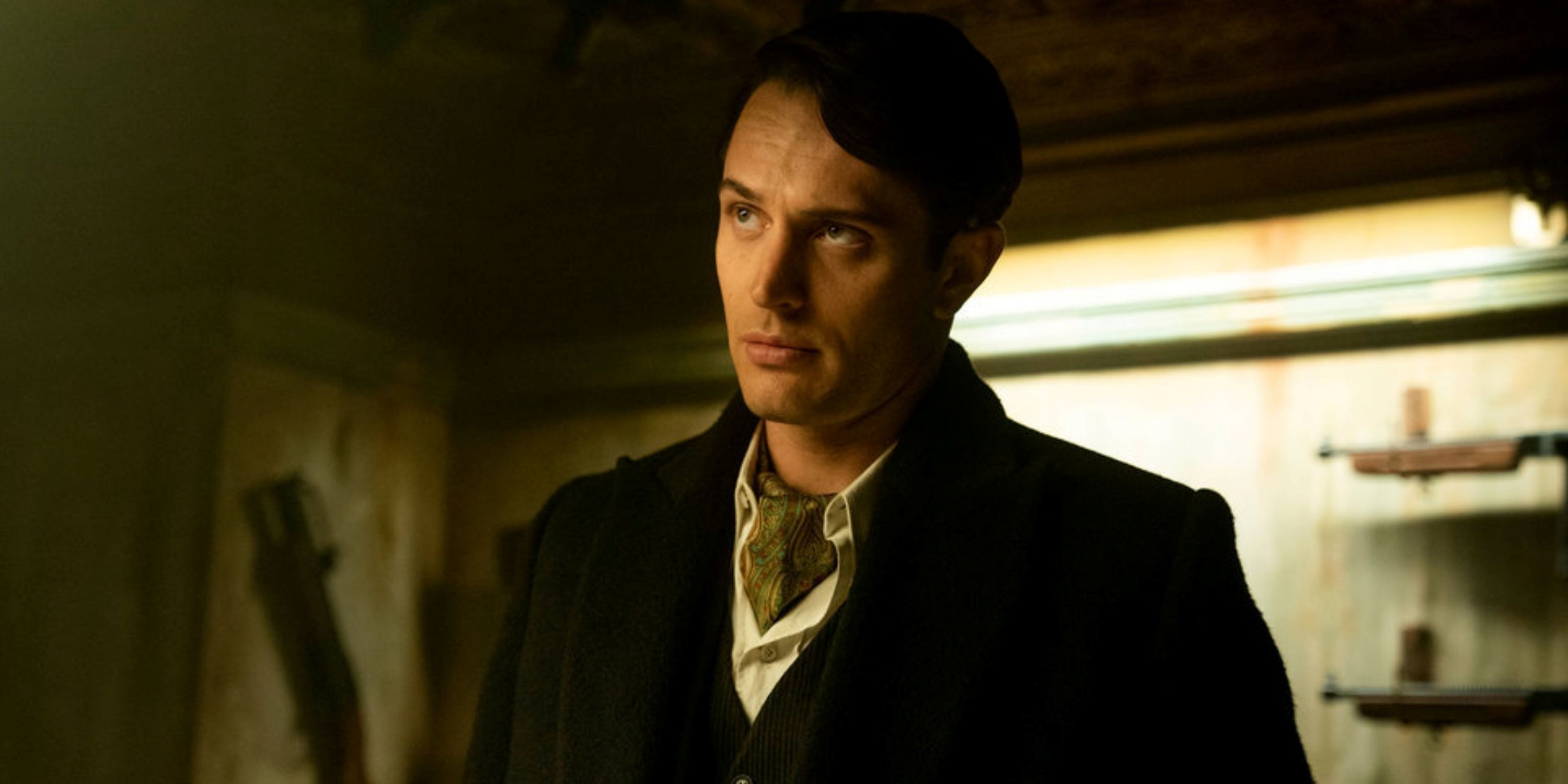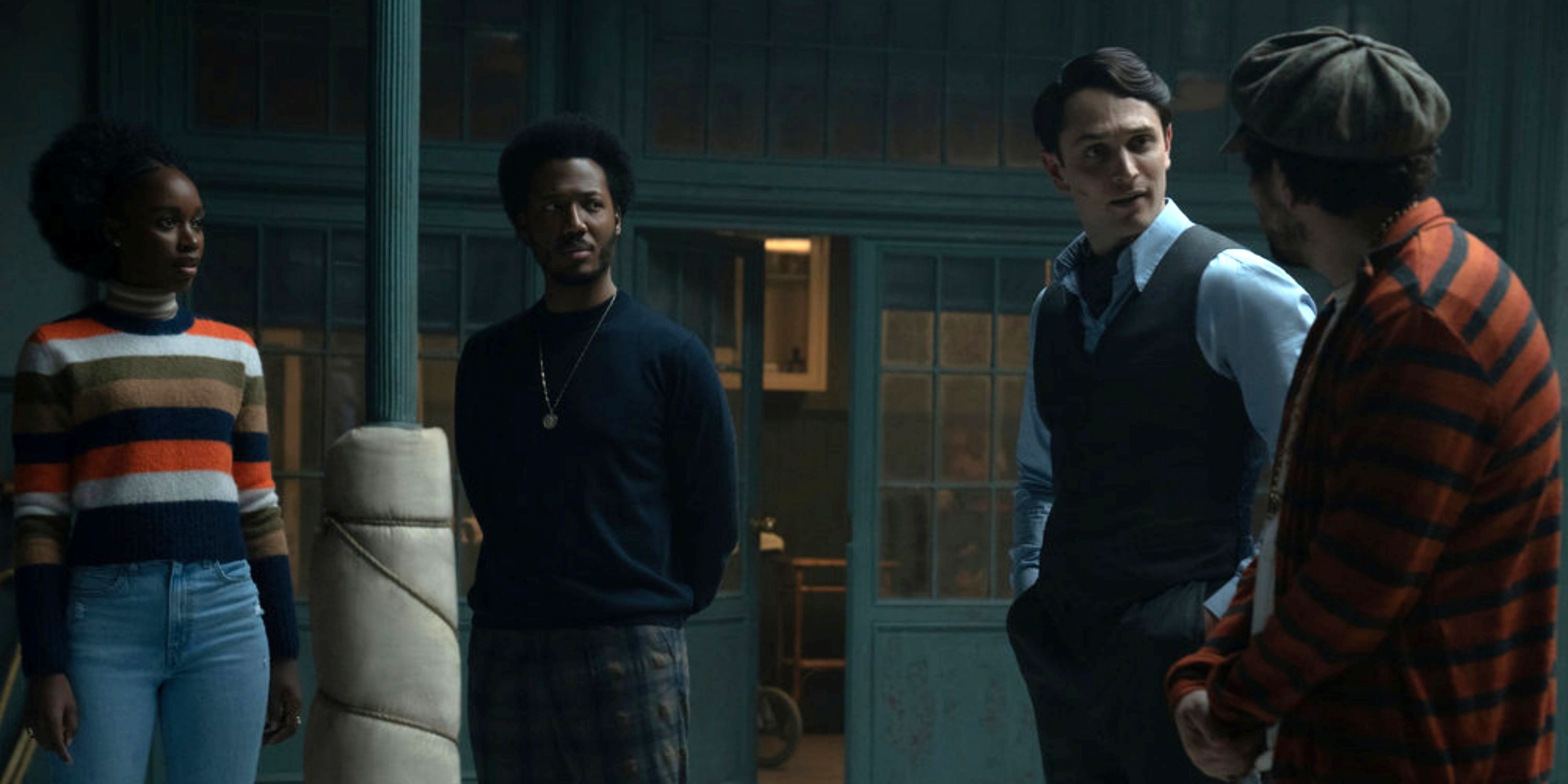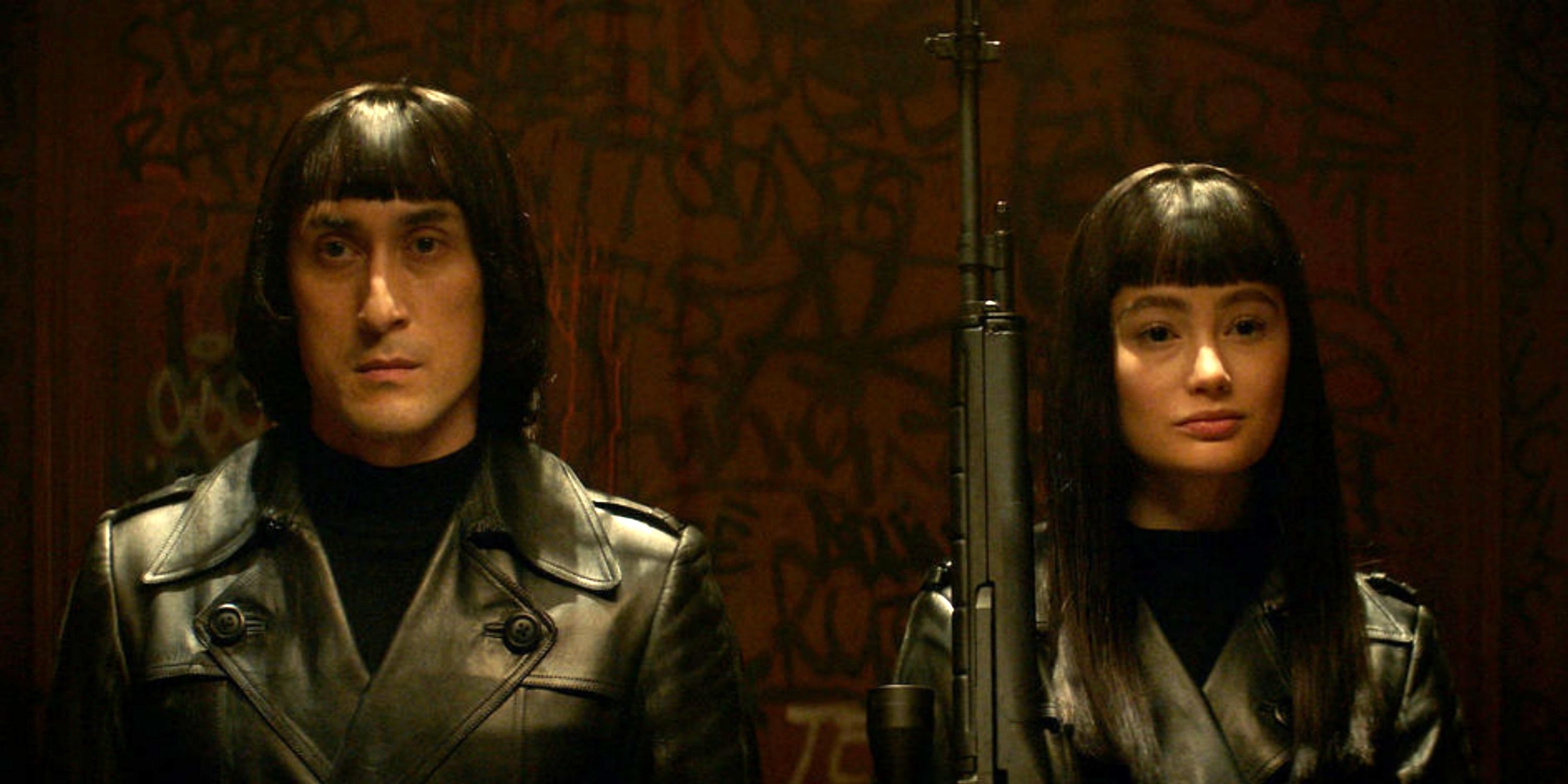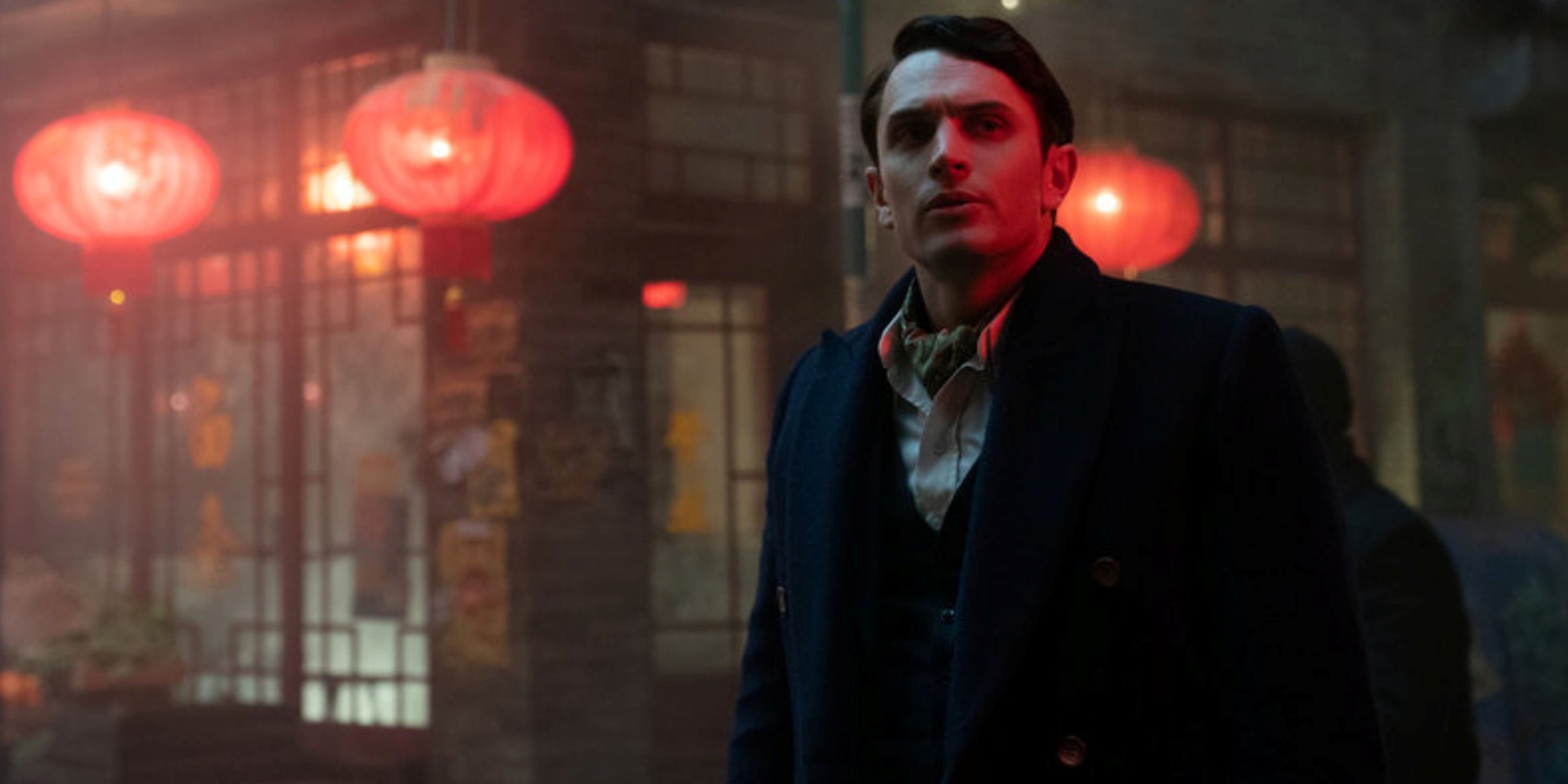The Big Picture
- The action sequences in The Continental: From the World of John Wick are comparable to dance scenes, with fluidity and visual appeal.
- The success of the John Wick franchise can be attributed to the strong connection between Keanu Reeves' character and the audience, as well as the intriguing world and characters established in the films.
- The decision to present The Continental as a three-night event came from a desire to tell a cohesive story in a unique way, and the possibility of a second season is being considered.
The Peacock three-part event series The Continental: From the World of John Wick delves into the origin behind the famous hotel for assassins in 1970s New York City. In search of his brother Frankie (Ben Robson), a young Winston Scott (Colin Woodell) finds himself entangled with a dangerous underworld where he must overcome his past, in order to become the man familiar to the John Wick universe.
During this interview with Collider, franchise executive producers Basil Iwanyk and Erica Lee talked about the gateway drug into the John Wick franchise, the fun of escapism, what led to this series being a three-night event, their hope for a second season, whether they see a John Wick 5 happening, their favorite action moments, and the status of the video game.
Collider: As someone with a dance background, I really enjoyed the fight choreography in this. It was impressive to watch everything that you guys did with his show.
BASIL IWANYK: It’s funny you say that. From the first John Wick movie, we always felt that the action sequences were like dance scenes, if you look at how Keanu [Reeves] is just flipping around.
ERICA LEE: It’s very balletic.
IWANYK: We always talked about Singin’ in the Rain. We wanted it to be incredibly visual. So, that’s definitely part of the Wick aesthetic, so I’m glad you picked that out.
What do you think it is about John Wick that’s not only led to the establishment of a franchise, but now a whole universe? Why does it work for you guys?
IWANYK: It all started with, and the gateway drug, was that first movie and Keanu and the character of John. I think people get a sense, rightly or wrongly, that Keanu and the John Wick character are very fused together, and I think the goodwill for the guy is overwhelming. People love that character, and they loved how much he was loyal to his wife and his dog. People were like, “I love this character. I will follow this character everywhere.” And then, people just got intrigued by the world we set up, with the rules, the aesthetics of the world, The Continental, these characters, like Winston and the Bowery King and, and the idea that there are no good guys or bad guys in the John Wick world. They’re all just people. They’re all just broken characters. We never set out to go, “Okay, let’s create this incredible world and people will ask questions.” But unbeknownst to ourselves, people were going, “Hold on, wait one second, we wanna know more about that character. We wanna know more about The Continental. We wanna know how the Bowery King became the Bowery King.” It’s a combination of that John Wick character, and creating and establishing a world where we just tease enough where our audience wants to know more. We don’t over explain ourselves. Frankly, we don’t over explain ourselves because we don’t know what the explanation is, since we’re making it up, as we go along.
LEE: The buy-in on Keanu and John was so deep. It’s this guy that goes on this revenge mission because his dog is killed. That primal feeling resonated with so many people, men and women. It was such a clean buy-in that everyone just went for it. And then, once they got there, we delivered something that was different than a lot of action movies, of the time. It was beautiful with interesting cinematography and the action was different. That was the beginning of it all.
IWANYK: The John Wick movies are nuts. They’re insane. When you try to explain to people the sequences of what’s going on, we don’t hold anything back. And that’s a part of the TV show, too. The show is crazy. When audiences go into a Wick universe world, we wanna show them that we’ll be totally wacky. We understand, the show understands, and the movies understand, and they don’t wink at the audience, but it’s like they know they’re movies and TV shows. We know it’s Hollywood fun and we don’t take ourselves that seriously. I think that gives the audiences permission to go with it.
LEE: And to have fun. We’re escapism. It’s just really fun.
How did you decide on making this what is being presented as a three-night event? Why was that the right approach for this particular story?
IWANYK: We struggled with the idea of a John Wick TV show and what it should be. There were two big events in the process. One was the idea of prequel, which we all loved. But then, after that, we still couldn’t figure out like the eight to 10-episode structure. It was still a little jumbled and confusing. So, the idea of the three nights came from Jon Feltheimer, and he was like, “Let’s go old school, like back in the day when there would be a movie event over a couple of nights. Let’s just do it differently.” Once we decided that, everything came together. For Erica, myself and Albert [Hughes], who have mostly done films, it fell in really easily, in terms of how we told that story because each of them is a film. If you look at the three nights, it is very much the rhythms of a three-act structure, with the beginning, the second act, and then the third act is mayhem, on that third night. So, that idea of the three films came from the chairman of Lionsgate.
Do you see another season happening? It feels like with the way that this is left, there is more story to tell, and that you could either continue telling it soon after those events, or you could jump in time and that would also be interesting. Have you had those conversations, or thought about that, at all?
LEE: We’re hopeful for a second season, and there’s definitely more story to tell. We haven’t quite figured out if we would time jump or not. Those conversations are just starting now.
IWANYK: The one common emotion of all the John Wick movies, when we’re shooting them, and with the John Wick TV show, is that we never talk about sequels. We’re so terrified and desperate to make sure the stuff we’re doing works. When you do a TV show, there’s the assumption that, if it works, there will be more seasons. We have not had any conversations, really, about what that would look like. One reason for that is for practical purposes because we don’t know what we’re doing and there’s a writers’ strike. But also, we don’t wanna tempt the movie and television Gods and have them say, “Oh, you’re getting cocky and talking about a sequel? Well, fuck you!” I don’t wanna anger them. I wanna be humble in front of them.
With John Wick 4, you left things in a place where John Wick is dead, so people are clearly wondering what will happen next, in John Wick 5. Do you see another movie happening? Is it better to expand the franchise with things like The Continental and Ballerina, or is the hope to eventually get Keanu Reeves back in the role again?
IWANYK: After the 2nd, 3rd and 4th movie, making these films is so exhausting and it destroys Keanu, physically and emotionally. By the end, he’s always like, “I can’t do this again,” and we agree with him. The guy is just a shell of himself because he just goes off and goes for it. He was like, “I wanna be definitively killed at the end of this movie.” We were like, “You know, we’ll leave a 10% little opening.” We’ve all become such good friends and we all like each other so much and we’re all so tickled by the success of these movies, critically and commercially that we all think to ourselves, “Okay, how do we get the band back together, in a way that merits a good story in the next evolution of John.” At this point, it’s Keanu and Chad [Stahelski] getting together to figure out what that story is. The way I describe it is that they’re like Paul McCartney and John Lennon, and I’m Ringo. They’ll call me and let me know, “All right, we’re showing up. Here’s where you show up, and here’s what our story is.” We all want another John Wick. We don’t know what it looks like and when it will happen, but we love each other and we love this world. It’s gonna be all hands to try to figure it out. Have we figured it out? No. And if we can’t figure it out, will there be one? No, of course not. No one is gonna try to just jam it for the sake of jamming it.
What would surprise people to learn about making this series? What won’t they know from just watching the show?
LEE: That’s a good question. What would surprise people is just how long and how hard and how many frogs we had to kiss to get to the perfect story. It wasn’t a no-brainer. We really wanted to do the world justice. Picking the seventies and the prequel of Winston, a beloved character, and the idea of The Continental at its own character in the movie, we had only just scratched the surface. People would always ask, “Well, what does it look like inside The Continental?” With Basil, myself, and Chad, we always loved that world and really wanted to explore it, so that was how we came to the idea of it. What’s interesting is that we didn’t shoot in New York. We shot the whole show in Budapest. I think when people watch it, they’ll be really surprised about that because we really capture the look and the feel of seventies New York.
What would you say is the action set piece that you consider the highlight of the three nights of this series?
IWANYK: That’s a really good question. Not to be a nerd, but as a producer, you look at some of these action scenes as how much time you had with it and what you thought it could be. I still think that staircase scene in night one with Frankie, where he fights up the stairs, that was shot in a day. So, for me, I look at it and I’m like, “That is unbelievable evidence of choreography and skill and shooting.” But no one wants to know how the sausage is made. I think the fight scene in the phone book is so clever and interesting and something I’ve not seen before. I think the stuff with Yen is awesome because it’s so emotional. You really believe in her rage and her anger.
LEE: She’s such a visceral fighter. The fight between Yen and Gretal in night three, on the rooftop, is my favorite, just because it’s so visceral, and we also haven’t really done two women fighting in the John Wick world. I think that’s really cool.
There has been some debate about how long the John Wick movies take place over. Some people seem to think it’s a few months, while other people think it’s a year. How long do you guys think the time frame of these films is, from the first movie to the fourth movie?
IWANYK: I think the first three are three weeks.
LEE: It’s an undefined timeline.
IWANYK: I think the fourth movie is eight months later, or something like that. I think it all takes place within nine months.
LEE: Long enough to heal, but still be angry.
What can you say about where you guys are at, in the development of the video game? Is there anything you can tease about that?
IWANYK: It’s gonna sound more ominous than it needs to be, but we can’t comment on it because deals aren’t closed.
That’s still an answer. That’s an update.
IWANYK: Yes, it is. By the way, going back to your question about, how long does it take place, that’s why this show is so exciting for us and for John Wick fans. Keanu is either chasing someone or being chased for four movies. It takes place in such an abbreviated, urgent amount of time. There was never any breathing room to dig deep into a lot of stuff. Everything was so kinetic. I don’t wanna say that this TV show is slowing down because it has great pace, but that’s the glory of the TV structure. You spend more time on things. You’re not boxed into a running time, where you have to make sure you have short enough of a movie, so you can add another showing. I think people are loving the show because we’re finally answering questions that people had, that we had no time to answer in the film because of how urgent and the velocity of the storytelling.
At the same time, on the other side of that, it’s absolutely ridiculous, the action that you pull off on a TV budget. I don’t know how you made that happen because it’s insanely ridiculous.
IWANYK: I agree with that. I have to hand it to the 87eleven team and Larnell [Stovall], and just the world and the philosophy behind the action. I don’t know why we’re able to pull stuff off at the level we do, to be honest with you, except for the fact that the buy-in for any of the John Wick actors, whether it’s The Continental or Ballerina or the movies , is that you’ve gotta train and you’ve gotta prep. This can’t be two days before. You’ve gotta get into a gym and you have to train. With a lot of actors, you’d be surprised, they’ll be like, “No, that sounds too hard.” That is one of the reasons why we’re able to get some great action out. These people come in ready to roll.
There is such an interesting variety of action sequences and with what you do in them, which I really appreciated. You have scenes with two men fighting each other, two women fighting each other, a man and woman teamed up together to fight someone else, and you have various height differences, all of which add something really compelling.
LEE: And those choices are free. Those are cheap. Those are decisions made that don’t affect budget. That’s part of the design, and making it different and feel fresh, and that don’t cost anything.
The Continental is available to stream at Peacock.

